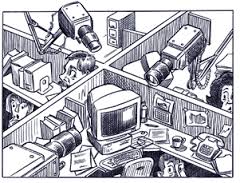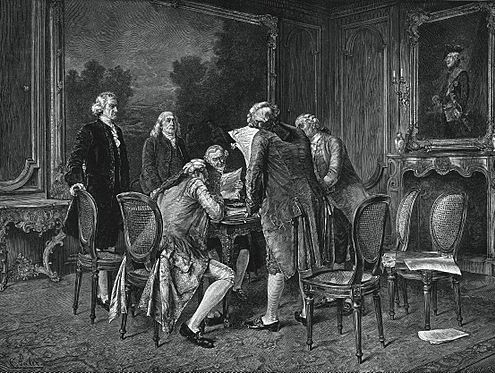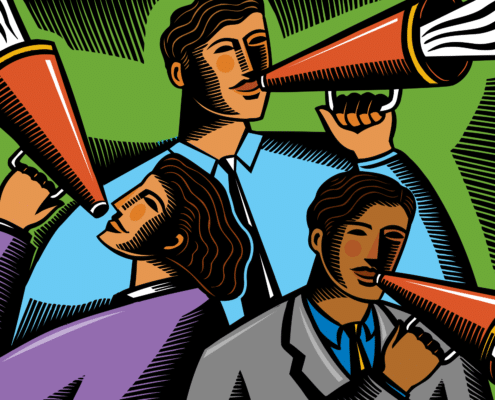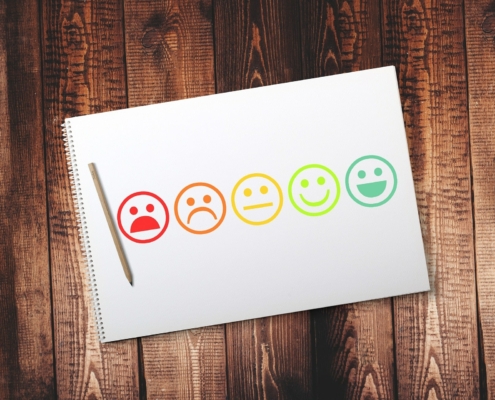
Navigating Ethical Systems: How professional accountants can drive ethical behaviour
Accounting, Blog, Ethics Pays, Incentives, Leadership, Practitioner, Professor, Research, Researcher, Teaching EthicsLearn about the individual psychology behind ethical behaviour, some of the issues impacting ethical systems and specific considerations for professional accountants and their teams to improve ethical behaviour.

Workplace Political Polarization
Corporate Culture, Human Rights, Personality & Personnel, Political Polarization, Practitioner, Professor, Research Summaries, Researcher
Political polarization in the United States is increasing more rapidly than among other democratic-style governments (Brown University, 2020; Pew Research, 2014) and becoming more problematic in terms of workplace civility and productivity…

Positive Psychology & Ethical Organizations
Corporate Culture, Positive Organizational Psychology, Practitioner, Professor, Research Summaries, Researcher
The modern movement of Positive Psychology is often said to have begun when Martin Seligman, in a 1998 speech as APA President, introduced the idea of a “reoriented science that emphasizes the understanding and building of the most positive…

Incentives
Incentives, Practitioner, Professor, Research, Research Summaries, Researcher
Introduction
Incentives in organizations take many forms. They can include monetary compensation and promotion as well as informal benefits, like influence or access, and social rewards (e.g. accolades, status, titles). They’re…

Remote Work
Practitioner, Professor, Remote Work, Research, Research Summaries, Researcher
Remote work, also often referred to as virtual work, telecommuting, or work-from-home, has expanded rapidly during COVID-19, assisted by advancing technology. As we witness this monumental change, our understanding of ethical culture, leadership,…

Corruption
Corruption, Practitioner, Professor, Research, Research Summaries, Researcher
Part of a 15th-century fresco depicting a two-faced "bad judge" double-dealing—taking bribes from a serf, on the left, and a nobleman, on the right.
The leading non-governmental organization in the anti-corruption field, Transparency…

Negotiation
Negotiation, Practitioner, Professor, Research, Research Summaries, Researcher
Carl Seiler, Signing the Preliminary Treaty of Peace at Paris
When people negotiate, they exchange information and solve problems interdependently. The process is rife with opportunities to use different strategies to achieve greater…

Speak-Up and Call-Out Culture
Practitioner, Professor, Research Summaries, Researcher, Speak-Up and Call-Out Culture
Speaking up inside an organization can be viewed as a risky exercise of employee voice that, like other prosocial behaviors, is more likely to occur in conditions of safety and security.
Companies thrive when potentially useful information…

Corporate Culture Assessment
Corporate Culture Assessment, Practitioner, Professor, Research Summaries, Researcher
Corporate culture, a rather nebulous psychological construct, is nevertheless part of an organization’s personality. It informs employees—via expectations, standards, prohibitions, and norms, both written and unwritten—how to behave,…

Workplace Surveillance
Practitioner, Professor, Research Summaries, Researcher, Workplace Surveillance
Surveillance and monitoring in the workplace have evolved alongside advancing technologies, presenting ever-multiplying opportunities, risks, and emerging ethical questions. More pervasive and personal every year, the "datafication" of…
